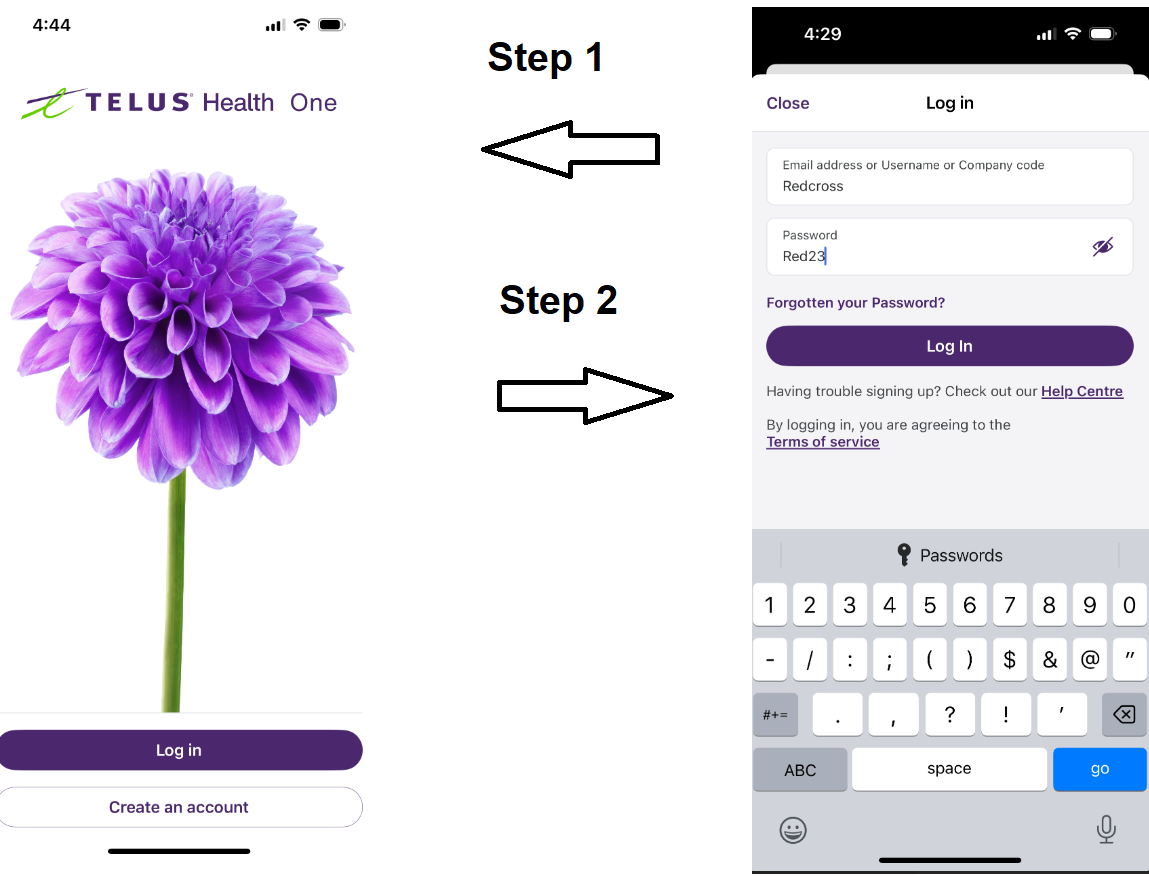Health, safety and wellbeing


Measles notice
Health, safety and wellbeing resources
Everyone has a role to play in making sure New Zealand Red Cross is a healthy and safe place to work and volunteer.
On this page:
Get involved in HSW
Health, Safety and Wellbeing (HSW) is everyone’s responsibility, so everyone should have a say, and everyone’s views and contributions must be considered and valued.
If you would like to take on the role of an HSW Champion and be a voice for HSW in your area, we would love to hear from you!
Expressions of interest for HSW participation
If you want to play an important role in building a positive culture around HSW here at New Zealand Red Cross (NZRC), please speak to your people leader and register your interest with the form provided. Note that positions are limited, so the HSW team will contact you after you complete the form to discuss options.
Documents about worker engagement & participation
- FAQs about the role of HSW Representatives and Champions (PDF, 172KB)
- HSW standard for worker engagement, participation and representation: Summary of work/volunteering activity groups (PDF, 208KB)
More information on how to have a proactive HSW kōrero
- Quick guide: How to have a proactive HSW kōrero (PDF, 149KB)
- Poster: How to have a proactive HSW kōrero (PDF, 103KB)
- Email hsw@redcross.org.nz with any queries.
Mental health and wellbeing support
Our Employee Assistance Programme (EAP) provider TELUS Health is a confidential external wellbeing support service that allows our people and their immediate family members free access to sessions with qualified coaches/counsellors.
This service is also available to members, including those who volunteer their time, who don’t have access to EAP through other means, such as through an employer.
|
Personal |
Work |
| Relationships and Separation or family issues | Work-life balance |
| Anxiety (including climate anxiety) | Interpersonal conflict |
| Grief, loss and bereavement | Career issues or transition |
| Parenting and eldercare | Restructuring |
| Communication issues | Organisational change |
| Stress and depression | Bullying or harassment |
| Financial problems | Difficult customers |
| Addictions | Performance difficulties |
| Illness/other health issues | Work crisis and trauma |
| Loneliness | Self-management |
| Self-esteem confidence | Leadership challenges |
| Non-work-related legal advice | Workplace stress |
| Nutrition and eating issues | Workplace conflict |
| Lifestyle e.g. exercise | Return to work wellbeing |
For more information, download the TELUS Health flyer (PDF, 459KB).
You can connect with this service:
By calling 0800 835 870 or booking online using the TELUS Health Wellbeing Platform.
By free mobile app for IOS or Android: Download the 'TELUS Health One app' to your device from Google Play or the Apple Store. Please note that TELUS health have several apps, be sure to choose the 'TELUS Health One app' (see image below).
Use the following login details to access a range of wellbeing resources and securely book appointments:
Company code: Redcross
Company password: RED23

- Wellbeing resources include blogs, meditations, podcasts, learning modules, e-books, and more.
- The option of phone, virtual, or face-to-face appointments is available as well as a choice of clinician.
For queries, please email the HSW team at hsw@redcross.org.nz.
Change can be exciting, but also challenging, upsetting, and tiring, and may make maintaining your wellbeing more difficult. It's completely normal to have an emotional reaction to change and to find some days easier or harder than others.
It may also help to talk with others and share how you're feeling at this time, so please reach out to your people leader or general manager, your colleagues, or the HSW team.
Talking things through can really help – it’s okay to reach out.
Change-related posters
This poster includes eight tips for supporting your wellbeing and improving resilience.
Tips for building resilience through change (PDF, 100KB)
This poster was written for our people leaders during the NZRC Realising 2030 change process.
Leading through change (PDF, 1.8MB)
Change-related video
Always Changing is a 30-minute video recorded for New Zealand Red Cross in late 2021 by clinical psychologist Dr Sarb Johal. In this video, Sarb outlines what dealing with change and uncertainty might look and feel like, simple steps you can take to feel better, prepare for the future and whatever comes next.
The Mental Health Foundation has some excellent resources to support your wellbeing. We recommend:
1. Te Whare Tapa Whā model of wellbeing
This holistic wellbeing model was developed by leading Māori health advocate Tā Mason Durie in 1984, describing health and wellbeing as a wharenui. It is a metaphor based on four pillars of a wharenui | meeting house. When we look after all four aspects, we look after our hauora | wellbeing. Checking in on the four pillars helps us balance our hauora and support others to balance theirs, too.
Te Whare Tapa Whā model of wellbeing
2. Free self-help tools and apps
A list of free tools and apps you can access anytime. Topics include:
- general wellbeing
- Cognitive Behavioural Therapy (CBT), and
- targeted support for young people.
3. The Five Ways to Wellbeing
This is a set of five simple, evidence-based actions which can improve wellbeing in everyday life.
The Five Ways to Wellbeing
If you or someone you know, is in immediate danger, please call emergency services immediately on 111.
There are lots of New Zealand organisations with specific expertise supporting people with mental health and wellbeing challenges.
Helplines and local mental health services
In the Mental Health Foundation downloadable PDF guide below you’ll also find contact details for providers with expertise in anxiety, depression, addiction, family harm, parenting and more. Please reach out to them if you or someone you know needs support.
Helplines and local mental health services (PDF, 243KB)
All New Zealand Red Cross employees and volunteers can register for free Psychological First Aid (PFA) training through the First Aid team. This is a one-day, in-person course. You are encouraged to complete this training. Please note that courses are subject to availability in your location.
PFA is a simple, yet powerful way of helping someone in distress so they feel calm and supported in coping with their challenges. PFA is relevant whether distress is personal, work-related or affects the whole community, such as after a weather emergency.
- To make a booking, or for any enquiries, please email firstaid@redcross.org.nz
- Mental health and wellbeing courses available
- Recovery matters workshops available
- General guidance on caring for yourself and others after a disaster or emergency
Diversity, equity, inclusion and wellbeing
We are committed to providing an environment where all people feel welcome, valued, and seen in their identities.
Find out about diversity and inclusion at New Zealand Red Cross
Supporting the mental health and wellbeing of our people (employees and members) is a priority for us. Caring for people is at the heart of why we exist.
In 2023, two surveys were taken to ask Red Cross people about their mental health and wellbeing, and to understand diversity, equity and inclusion in our organisation.
Thank you to all who took part. We heard what you said, have considered the feedback and planned for ways to improve how we look after our people.
We have created a factsheet outlining the key themes of what you told us and what we’ll be focusing on improving.
We will continue to update you on how these initiatives are going and on opportunities for you to be involved in wellbeing and diversity, equity and inclusion initiatives.
Realising 2030 - Mental health and wellbeing (PDF, 250KB)
Safe driving guidelines
All members who drive as part of their volunteer role need to be aware of driving safety.
- Safe driving policy (PDF, 1MB)
- Safe driving guidelines (PDF, 315KB)
Those who drive an NZRC vehicle must also follow these requirements, including registering with EROAD.
Anyone who drives an NZRC vehicle must:
- Complete the safe driving module on the Aspire e-learning website.
Find out how to access Aspire - Complete our Comprehensive First Aid course or the equivalent course from another provider.
Learn about and book our first courses - Register with EROAD by following the steps below.
EROAD is a driver safety and fleet monitoring programme installed in most NZRC vehicles. You must log into EROAD when driving one of our vehicles. The systems monitors:
- driver practices and behaviours
- excess speed
- road user charges
- vehicle registration and WOF expiry dates.
To register with EROAD email copies of your driver licence and your First Aid Certificate to David McConachie who is based in Red Cross House in Wellington.
Specific HSW guidance for volunteers
- Make sure your actions (or lack of actions) don’t harm your health, safety and wellbeing, or harm anyone else.
- Take part in a HSW induction, training, programmes and activities.
- Follow all instructions given to you about health, safety and wellbeing.
- Follow all NZRC HSW policies, standards and procedures about health, safety and wellbeing.
- Make sure you have the right training for any activities you are doing.
- Use personal protective equipment (PPE) for any work activities that may need it to stay safe.
- If you spot a hazard, or you are involved in an incident or near miss, report this straight away.
If you've had time out of volunteering because of an injury or illness we have guidelines to help you get back into your volunteer role. We are committed to supporting our people to return to work (which includes volunteering activities) or to remain at work safely after work-related and non work-related injuries and illnesses. Our guidelines set out the roles and responsibilities during the rehabilitation process, support available, and what to expect.
Read the guidance on returning to volunteering (PDF, 241KB)
How to log a HSW report
All members and employees must report accidents and incidents via our Health Safety and Wellbeing (HSW) reporting system, GOSH. You do not need a login or account to access GOSH. For help or advice on health and safety contact hsw@redcross.org.nz.
GOSH also has the option for you to report stress affecting you at work in the same way as reporting injuries and incidents.
Stress reports are confidential to the HSW team, but the report also gives you options of escalating the report to your people leader or requesting someone from the People and Capability team to get in touch.
If you're not comfortable with either option, someone from our HSW team will confidentially check in with you.
If you've observed or been impacted by abuse, aggression, bullying, harassment or discrimination while working or volunteering for New Zealand Red Cross, please let us know by raising an unacceptable behaviour report.
Like stress reports, these reports are confidential to the HSW team. We will get in touch with you to talk about the issue and what you want to happen as a result of the report.
Further information
- Read our HSW Statement of Commitment (PDF, 158KB)
- Read our HSW Framework (PDF, 351KB)
- Read the Zero Harm Workplaces Pledge (PDF, 194KB)
